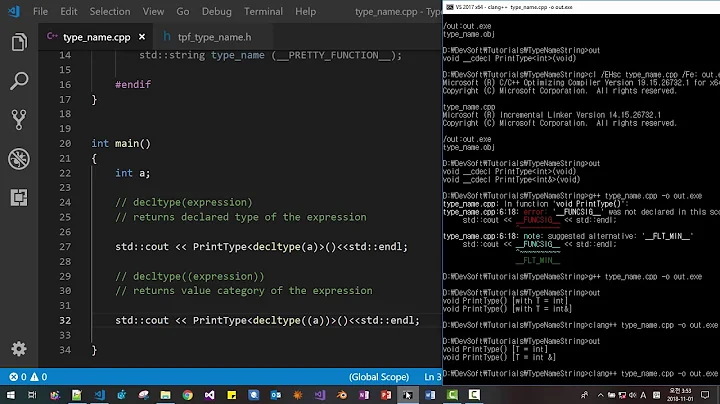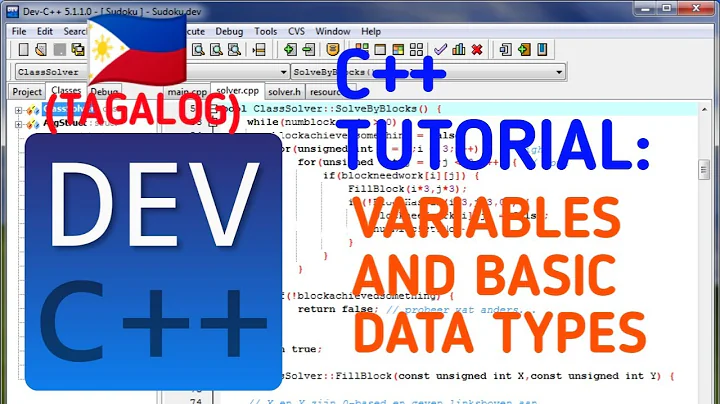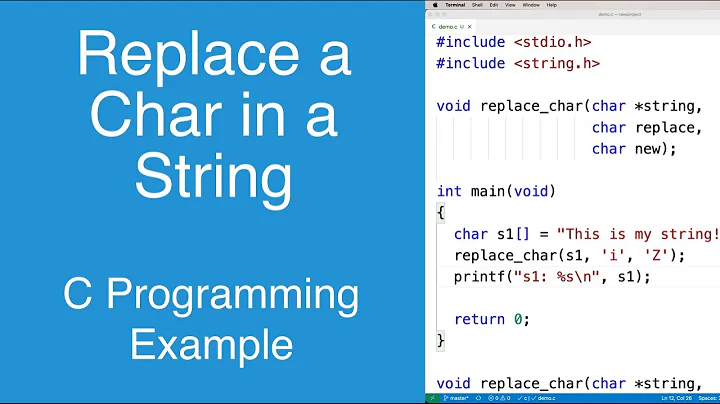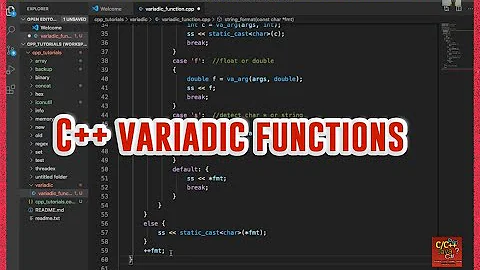converting a variable name to a string in C++
Solution 1
You can use the preprocessor "stringify" # to do what you want:
#include <stdio.h>
#define PRINTER(name) printer(#name, (name))
void printer(char *name, int value) {
printf("name: %s\tvalue: %d\n", name, value);
}
int main (int argc, char* argv[]) {
int foo = 0;
int bar = 1;
PRINTER(foo);
PRINTER(bar);
return 0;
}
name: foo value: 0
name: bar value: 1
(Sorry for printf, I never got the hang of <iostream>. But this should be enough.)
Solution 2
try this:
#define GET_VARIABLE_NAME(Variable) (#Variable)
//in functions
int var=0;
char* var_name= GET_VARIABLE_NAME(var);
Solution 3
I had the same problem. After a little bit of experimentation I created following macros that convert names of variables, fields, functions, methods and types to strings.
#define MACRO_VARIABLE_TO_STRING(Variable) (void(Variable),#Variable)
#define MACRO_FUNCTION_TO_STRING(Function) (void(&Function),#Function)
#define MACRO_METHOD_TO_STRING(ClassName,Method) (void(&ClassName::Method),#Method)
#define MACRO_TYPE_TO_STRING(Type) (void(sizeof(Type)),#Type)
The code uses comma operator and void conversion to force compiler to check if variable, function, etc. really exists. The nice thing is that it works well with uninitialized variables too. I tested it on both VC and GCC with all pedantic options I found out without any warning messages.
int GetAndPrintValue(const char* VariableName)
{
std::cout << VariableName << std::endl;
return 10;
}
int Variable=GetAndPrintValue(MACRO_VARIABLE_TO_STRING(Variable));
I use such code when I write parsers that reads data from input stream and if parsed variable is out of bounds it throws an exception with name of variable that failed my validity checks.
Solution 4
Slightly adapted from @sarnold's answer, for C++:
#define DEBUG(x) std::cout << #x << " = " << x << std::endl;
An example program which uses this:
int main() {
int foo = 1;
DEBUG(foo);
return 0;
}
Solution 5
You can use the preprocessor, there's a stringify token, but it's only available from the source, not to a function (you'd get the argument name).
Related videos on Youtube
Comments
-
Wawel100 over 3 years
I'd like to output some data to a file. For example assume I have two vectors of doubles:
vector<double> data1(10); vector<double> data2(10);is there an easy way to output this to a file so that the first row contains the headings 'data1' and 'data2' followed by the actual contents. The function which outputs the data will be passed various different arrays so hardcoding the name of the heading is not possible - ideally I'd like to convert the variable name to some string and then output that string followed by the contents of the vector array. However, I'm not sure how to convert the variable name 'data1' to a string, or indeed if it can easily be done (from reading the forums my guess is it can't) If this is not possible an alternative might be to use an associative container such as map or perhaps more simply a 'pair' container.
pair<vector<double>,string> data1(10,'data1');Any suggestions would be welcome!
-
data over 13 yearsI have to wonder what you are trying to achieve. If it is arbitrary amounts of data, naming each part of it won't do you any good, because it has to be done by hand anyway. Your second solution is probably the one you are looking for.
-
user1478209 almost 12 yearsWow, this is a bit trickey, one thing you could try to do is make classes or structs, which have an element that is the string 'name'.
-
 Ciro Santilli OurBigBook.com over 7 years
Ciro Santilli OurBigBook.com over 7 years
-
-
Wawel100 over 13 yearsIdeally I'd like to be able to call the function that does the output without a string parameter containing the names of the varialbes.
-
cs1349459 about 2 yearsNice.
printfis fine in my opinion, just another option for ouput. They're all the same to me. -
sarnold about 2 years@cs1349459 in a small toy like this, yes, C stdio isn't much different from the C++ iostreams. However, in larger projects, quite often the C++ iostream synchronizing with C stdio takes enough time that it is disabled. Mixing stdio with iostreams in that case will probably cause surprising behavior. I still don't understand iostream well :) so head to en.cppreference.com/w/cpp/io/ios_base/sync_with_stdio for more information.












